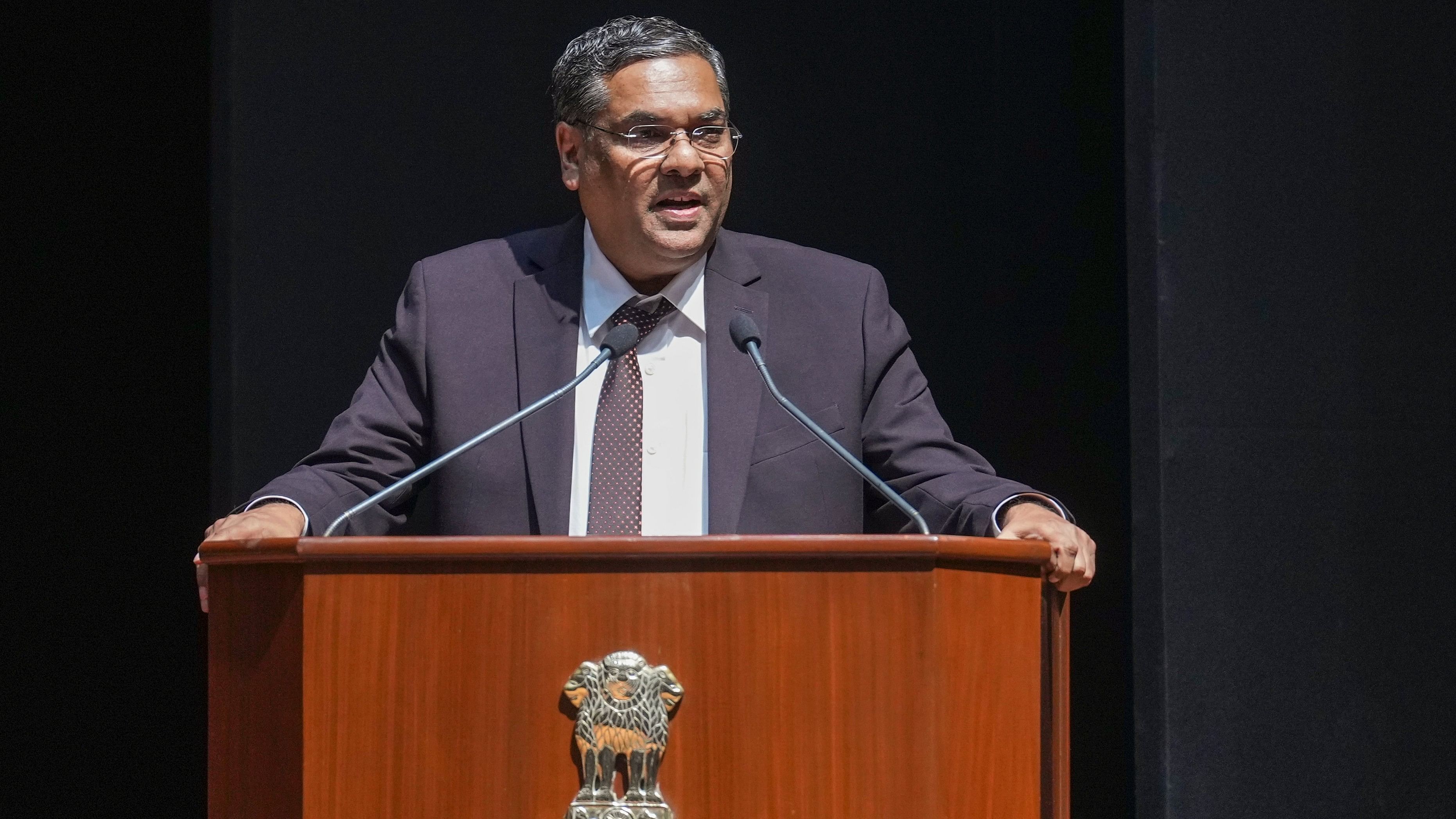
Supreme Court Justice Sanjiv Khanna.
Credit: PTI Photo
New Delhi: Supreme Court's senior most judge Justice Sanjiv Khanna is going to be the next Chief Justice of India with effect from November 11, 2024. He will be the 51 st CJI.
His hands would be full from day one till his tenure ends on May 13, 2025, ensuring greater diversification in Collegium picks for the high courts and the Supreme Court, and taking institutional steps to reduce pendency of cases. He would also have to deal with charges of institutional intrigues in allocation of cases and ensuring quick disposal of cases particularly in which the question of personal liberty is involved.
For Justice Khanna, who started his career as an advocate at the Tis Hazari court, a district court in Delhi, it has been a long journey.
He got enrolled as an advocate with the Bar Council of Delhi in 1983 after completing law degree from the Delhi University's Campus Law Centre, though his parents wanted him to become a chartered accountant since practising law was always seen as a tough choice.
Born in 1960 to a distinguished legal family, Justice Khanna carries forward a remarkable legacy of his uncle, Justice Hans Raj Khanna, who is easily one of the most revered judges who ever graced the Supreme Court.
His father, Dev Raj Khanna, was a judge of the Delhi High Court. He retired in 1985. His mother, Saroj Khanna, was a lecturer of Hindi at the Lady Shri Ram College in Delhi.
But for Justice Khanna, his inspiration was his uncle Justice Hans Raj Khanna who resigned from the Supreme Court after being superseded by Justice M H Beg for the CJI post by then Prime Minister Indira Gandhi in 1976. She was irked with his judgment in the ADM Jabalpur Vs Shiv Kant Shukla case, popularly known as the Habeas Corpus case.
Justice Khanna did his schooling from Modern School at Barakhamba Road, and graduated from prestigious St Stephen's College.
He learnt the ropes during his practice in the Delhi High Court and tribunals in the fields as diverse as constitutional law, direct taxation, arbitration, commercial law, company law, land law, environmental law and medical negligence cases.
For a long part of his career, he, however, was the government counsel. Justice Khanna also had a long tenure as the senior standing counsel for the Income Tax Department. In 2004, he was appointed as the Standing Counsel (Civil) for the National Capital Territory of Delhi.
In 2005, he was elevated as an additional judge of the Delhi High Court and was made a permanent judge in 2006. In his days as Delhi High Court judge, lawyers recall, he was known to be very conservative in approach and too restrained in granting relief. Even his colleagues used to taunt him for dismissing too many matters.
Since his elevation to the Supreme Court on January 18, 2019, lawyers say, he has changed a lot and has become relief and liberty oriented.
The Supreme Court Collegium led by then Chief Justice of India Ranjan Gogoi had picked him for elevation to the apex court though Justice Khanna stood at serial number 33 in the combined seniority of high court judges at all India level.
Senior advocate Sidharth Luthra says Justice Khanna's sensitivity to personal liberty is evidenced in his numerous decisions.
"As a judge he commands his court firmly and displays a crisp sense of humor which ensures a pleasant court experience for litigants and lawyers alike. I am confident the judicial institution will see many positive changes in his tenure," he says.
For his friends, Justice Khanna continues to be affable, simple and calm. But for the outside world, he is a very reserved person and keeps himself away from publicity.
"Even while he was a lawyer, the incoming CJI was extremely focused on his work. His work ethic and dedication to the law was evident from the effort and energy he put in each of his briefs as a lawyer, and it continued during his tenure as a judge of the high court and the Supreme Court. He is thorough and reads every brief meticulously, yet is always open to consider legal and factual submissions. His support for legal education and support for educational institutions is appreciable," Luthra says.
Justice Khanna's journey so far from an advocate in 1983 to the head of judiciary has been marked by numerous landmark judgments. His notable rulings include the RTI Act's applicability to the CJI's office, the unconstitutionality of Electoral Bond Scheme, and significant decisions on Article 370 and EVMs.
"Though his tenure as CJI will span only six months, Justice Khanna's elevation represents the culmination of a distinguished career marked by balanced jurisprudence and unwavering commitment to constitutional values," says advocate Vipin Nair, president of the Supreme Court Advocates-on-Record Association.
He hopes Justice Khanna as the new Chief Justice of India will implement innovative measures to improve the functioning of the Supreme Court in general and keep the interest of the Bar members on a high priority, in particular.
